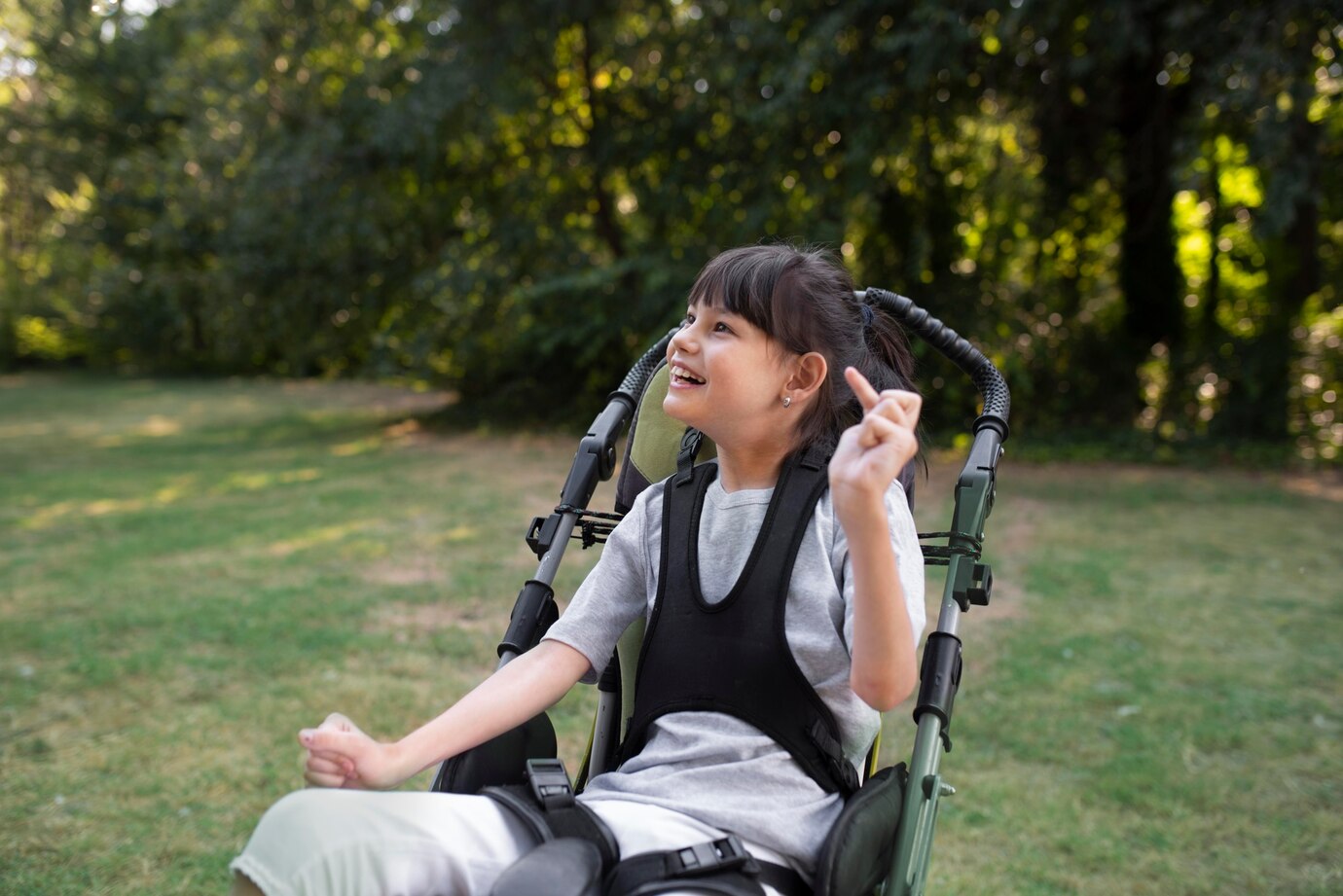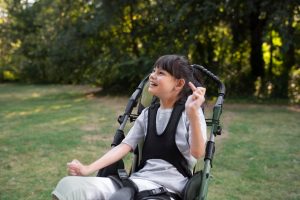Empowering Independence: Strategies for Enhancing Daily Living Skills

Table of Contents
- Understanding Daily Living Skills
- Personal Care and Hygiene
- Home Management
- Financial Literacy
- Community Integration
- Role of Technology
- Family and Community Support
- Conclusion
Supporting individuals with disabilities in mastering daily living skills can make a profound difference in their independence and quality of life. Meaningful engagement in these areas has a ripple effect—not only does it empower individuals to take charge of their own well-being and daily routines, but it also strengthens their sense of agency and social inclusion. These skills are foundational for managing one’s own needs, participating meaningfully in the community, and fostering self-confidence, which can lead to greater emotional well-being and resilience. Options like a day program can provide structured environments where individuals develop these critical abilities through personalized instruction and supportive routines. Trained professionals and tailored curricula in these programs ensure that educational approaches are sensitive to diverse learning styles, helping people progress at their own pace while celebrating every achievement along the way.
From learning to cook and maintain personal hygiene to navigating financial responsibilities and leveraging technology for better routines, daily living skills open up new possibilities in every area of independence. Effective strategies must address skill development holistically, encouraging both step-by-step learning and the use of adaptive tools or resources as needed. Rooted in flexibility, these strategies help participants build confidence through hands-on practice and real-life problem-solving. Creative approaches, such as visual aids, peer group learning, or multisensory resources, make skill-building more accessible and engaging, and they can be adapted as individuals’ needs change over time.
Family, caregivers, and community organizations each have significant roles in this developmental journey. Their encouragement and collaborative involvement provide both emotional security and practical support, enabling individuals to assume more responsibilities at home and in the community. When partnered with individualized approaches and accessible educational opportunities, these supports help maximize independence for people of all abilities. This comprehensive support system ensures that everyone involved is aligned on goals, leading to more consistent progress and a greater sense of shared purpose.
Participating in skill-building opportunities not only boosts autonomy but also provides important social and emotional benefits, as highlighted by leading organizations and experts in the field of disability services. Improved self-efficacy, friendships formed through group activities, and reduced isolation are just a few of the long-term advantages seen from robust daily living skills training. Learning skills for daily living is an ongoing process, best reinforced through consistent practice and positive reinforcement in real-life scenarios—whether that’s at home, in community settings, or under the guidance of mentors and professionals who understand each person’s unique journey.
Understanding Daily Living Skills
Daily living skills encompass the core activities necessary for self-sufficiency, including grooming, household chores, meal preparation, and managing personal health and hygiene. Mastery in these areas supports a more independent lifestyle and encourages inclusivity within the broader community. Skill development is often tailored to the unique needs, abilities, and interests of each individual—whether through one-on-one mentoring, peer groups, or specialized educational settings. This individualized focus ensures that skill-building is approachable and relevant, capitalizing on each person’s strengths while supporting areas needing growth. In addition to practical skills, reinforcing routines through repetition and visual supports helps transform challenging or unfamiliar tasks into comfortable, second-nature habits.
Personal Care and Hygiene
Maintaining good personal hygiene is crucial not only for health but also for building self-esteem and confidence. Programs focused on personal care often introduce adaptive equipment—such as color-coded hairbrushes, toothbrushes with tactile markers, or bathing aids—that make daily routines more accessible. These personalized strategies ensure that each person can participate fully in their day-to-day self-care, no matter their level of ability. Individualized approaches might also include step-by-step instructions or breaking larger routines into manageable segments, which help prevent overwhelm and facilitate the learning process.
Building Consistent Habits
Simple visual schedules or digital reminders can help structure daily tasks, such as brushing teeth, dressing, or managing medication. Over time, consistent reinforcement makes these activities more familiar and less stressful, leading to greater independence. Caregivers and educators can further support this process by encouraging self-advocacy and choice, ensuring that individuals feel in control of their routines and motivated to sustain healthy habits.
Home Management
Home management skills are crucial for maintaining a safe, organized, and comfortable living environment. Training in this area focuses on creating accessible living spaces, understanding safety protocols, and managing tasks such as cleaning and meal preparation. For many individuals, even minor changes—such as improved lighting, labeled storage, or accessible kitchen tools—can make daily chores safer and easier to manage. Skills gained in this domain enable greater participation in household decision-making and encourage individuals to take pride in their living environment. Developing routines for tasks such as laundry, tidying, or meal planning further deepens a sense of autonomy and helps foster organizational skills.
Practical Strategies for Safer Living
Adaptive techniques include marking appliance dials with raised dots, using high-contrast labels, or employing smartphone apps for household scheduling. These modifications create a safer and more navigable environment, ensuring that individuals can perform daily tasks with confidence and minimal risk. Cultivating these skills helps reduce risk and builds a sense of ownership and autonomy within the home.
Financial Literacy
Understanding money management is essential to independent living. Financial literacy programs teach budgeting, expense tracking, and utilizing online banking or payment systems. These skills are especially important for gaining greater control over personal choices and planning for the future. For instance, collaborations like the DBS Foundation and SG Enable initiative are equipping people with disabilities and caregivers with digital and financial literacy skills, expanding their independence and opportunities. By introducing basic banking concepts, explaining the importance of saving, and providing practice with simple transactions, individuals are better prepared for handling real-world responsibilities and avoiding financial pitfalls.
Leveraging Accessible Resources
Tools such as talking calculators, accessible budgeting apps, and step-by-step guides have made managing finances more approachable for individuals of all abilities, supporting a safer and more informed approach to personal money matters. Practice with simulated purchases or basic budgeting worksheets can help reinforce concepts and gradually increase confidence when handling actual transactions. Additional resources from organizations like USA.gov can also offer valuable guidance.
Community Integration
Community participation fosters a sense of belonging and develops social skills. By involving individuals in activities like shopping, using public transportation, or volunteering, they can apply their skills in meaningful, real-world scenarios. For those expanding their involvement, learning to request assistance when needed and communicating preferences clearly is integral for safety and social success. Many local organizations provide support groups or workshops designed to reinforce daily living skills within community settings. These experiences create lasting connections and foster a sense of civic contribution, further reinforcing self-worth and independence.
Encouraging Active Participation
Structured outings or social clubs provide opportunities for practicing communication, problem-solving, and navigating public spaces—cornerstones of a more independent and connected life. With guidance from supportive mentors or peers, individuals can develop confidence in new environments, ultimately leading to increased autonomy. Regular engagement also helps build resilience and adaptability.
Role of Technology
Technological tools continue to transform the landscape of daily living skills training. Customizable routines, accessible through smartphones or tablets, utilize visual checklists, video demonstrations, or audio cues to provide step-by-step guidance tailored to the individual’s learning pace and needs. Technology not only increases independence but also enables caregivers to monitor progress and adapt strategies in real-time. These digital supports can be personalized, updated as skills improve, and are accessible for a wide variety of learning styles and abilities, making growth both sustainable and engaging.
Emerging devices such as smart speakers, wearables, and accessibility-focused apps are expanding possibilities for independent living by making everyday tasks more manageable and less reliant on direct supervision. Many apps and devices are now designed specifically with accessibility in mind, offering voice control, large text, and reminder features that foster autonomy throughout the day.
Family and Community Support
Family members, caregivers, and community networks play a crucial role in nurturing new skills and encouraging daily practice. In addition to hands-on guidance, these support systems can boost motivation by recognizing incremental successes and offering patient, consistent feedback. Support often involves active demonstration, positive reinforcement, and collaboratively problem-solving barriers. Community partners—from vocational counselors to advocacy organizations—provide invaluable resources and real-life practice environments. These partnerships provide individuals with robust opportunities to apply their skills in safe and supportive settings, thereby strengthening their ability to practice and generalize new habits independently.
Building a Network of Encouragement
Strong support networks foster resilience and long-term learning. Working collaboratively, families and professionals can tailor strategies, monitor progress, and adapt plans to each changing need, keeping the individual’s goals at the heart of every decision. Collaborative efforts between families, educators, and service providers help sustain progress and celebrate milestones, creating a sense of shared achievement and empowerment for individuals with disabilities.
Conclusion
The path to independence is multi-faceted, requiring an approach that blends personalized training, adaptive resources, family involvement, and community engagement. By prioritizing skill development in everyday life, supported by accessible technology and community resources, individuals with disabilities can gain confidence and greater control in shaping their futures. Ultimately, supporting daily living skills is not just about achieving independence, but also about promoting dignity, self-worth, and the joy that comes from realizing one’s capabilities in all aspects of life.





